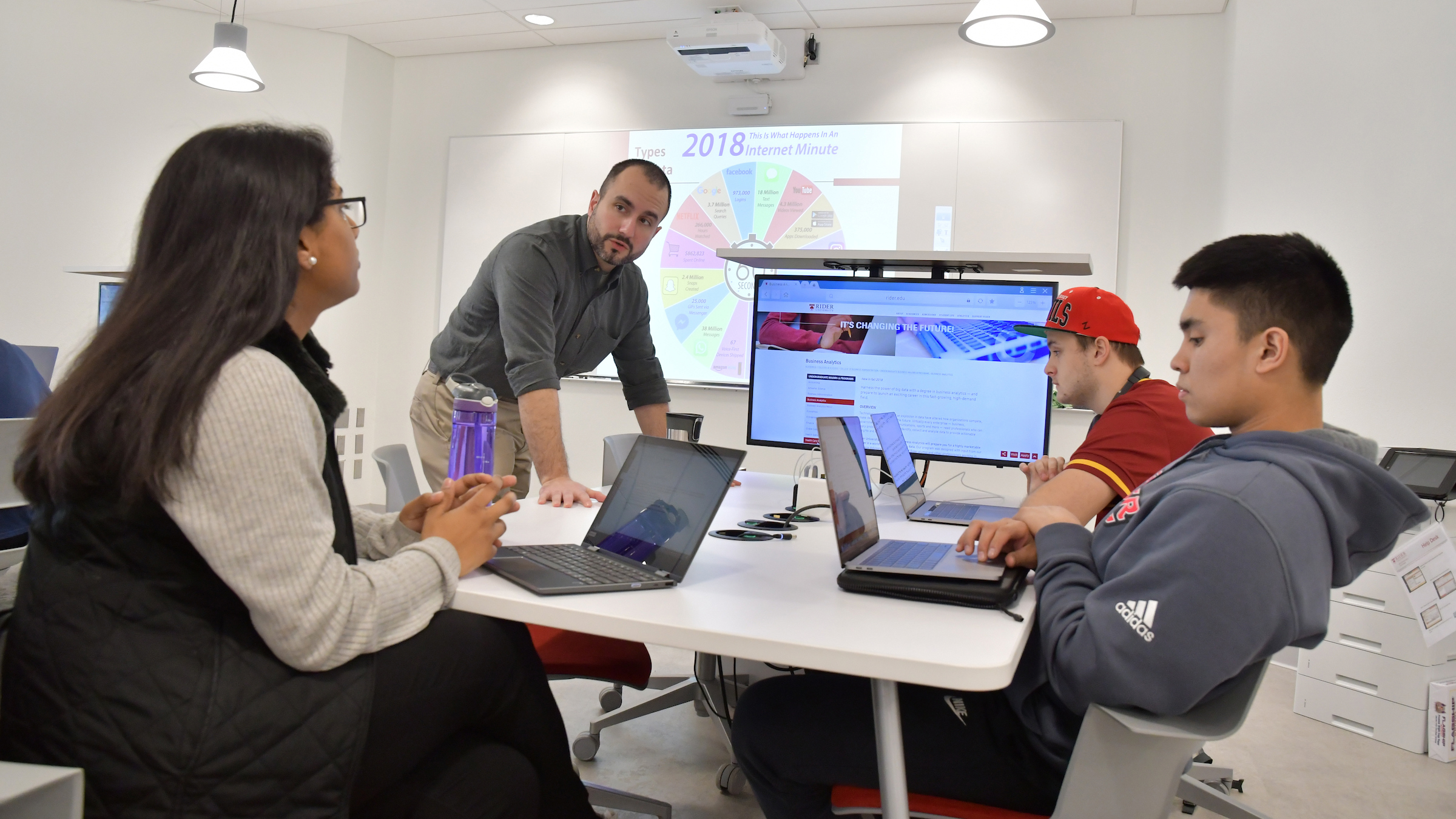Tuesday, Jul 30, 2019
The online program is ideal for those who work at colleges, universities
Starting in the fall of 2020, Rider University will begin offering a new master's program in higher education assessment, analytics and change management. Rider is among the first institutions in the country to offer this degree on the master’s level.
The 30-credit, fully online program will be ideally suited for people who work at colleges and universities in areas of institutional effectiveness, such as a research office, an assessment office, student affairs or enrollment management.
“There’s a lot of job growth in those areas,” says Dr. Tricia Nolfi, the director of Rider’s graduate program in organizational leadership, “and career advancement often requires a master’s degree. We’re going to offer a degree that’s relevant and timely for the work they’re doing.”
Subjects covered in the new program will include higher education administration, change leadership, organizational performance, data analytics and outcomes assessments. Rider will also offer an option for students to take individual courses as a non-credit professional development opportunity without enrolling in the full master’s program.
The new program will be a joint effort between the College of Education and Human Services and the College of Business Administration, which will teach the analytics courses. “They already have a successful analytics track in their MBA program, so it was an easy fit because those courses have already been developed,” Nolfi says. She adds that the classes will be tweaked to include content and assignments specific to higher education.
Those working in higher education are increasingly using analytics to help make decisions regarding student success, resource allocation, retention, program development, and enrollment management. Common challenges that institutions face are data governance quality, and integration, as well as lacking an overall strategy.
“In marketing, analytics are standard practice. In education, we’re not quite there yet,” she says. “So it’s borrowing a practice that business has been using for quite a while but we really haven’t translated it to the higher education environment.”
The goal of the program is to develop leaders who not only make informed decisions in the short term but also can predict future trends.
“One of the big pieces of our program is this idea of creating a line of sight between data collection and planning,” she says. “In a lot of schools, those functions operate separately. We’ll be teaching about the practice of institutional effectiveness, which is bringing functions together, or increasing collaboration, so an institution can be more efficient in data collection and management.”
Another key component of the program is the focus on the concept of change management, which Nolfi says is often overlooked in comparable certificate programs. She explains that change management is critical because often when institutions conduct assessments and then use those results for planning, they don’t consider the effect that change can have on the institution’s culture.
“If you’re involved initiating change in an organization, how do you get buy-in for the new way of doing things?” she asks. “How do you get advocates on your side to promote the new program you’re trying to implement? One of the things we look at is how to effectively facilitate change. Colleges and universities are not always very good at that. We struggle with change because many leaders don’t lead it very well, so that’s why we felt we need to have this focus in the program.”
Nolfi spearheaded the effort to create the new degree offering. She says the idea came from recognizing the increasing emphasis being placed on these skills by colleges and universities.
“We currently have a higher education concentration within our organizational leadership program,” she says. “I had been wanting to add some more courses that have to do with assessment, accreditation and analytics because there’s been a shift in higher education that’s starting to focus on those areas.”
Nolfi formed a team of faculty and staff to conduct a market study and further research the feasibility of such a program. “We realized there isn’t anything like this,” she says. “There are certificate programs, but not a degree program, and our research showed that there’s a big need to focus on the topics of analytics and data-driven decision making.”
Those interested in additional information about Rider's master's program in higher education assessment, analytics and change management can contact Nolfi at [email protected].

